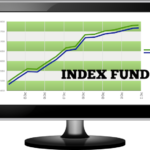Asset management is crucial for individuals and businesses with complex financial investments. While internal control may be challenging, seeking external expertise can provide the necessary oversight to optimize returns. Mutual fund companies employ professionals skilled in asset management to handle various investment instruments on behalf of clients. This article explores the importance of asset management, highlighting different investment types and their potential benefits.
Heading 1: Understanding Asset Management
1.1 The Role of Mutual Funds Companies
Mutual fund companies primarily offer asset management services. These firms pool resources from multiple investors and allocate them to different investment instruments. Unlike traditional banking, where funds generate interest, mutual fund companies offer a broader range of investment opportunities for clients seeking higher returns.
1.2 Types of Investment Instruments
Mutual fund companies offer various investment options for risk preferences and financial goals. Some common investment types include:
- Fixed Income: These investments, such as government bonds, provide a regular flow of income to investors.
- Equity: Investing in the stock market involves higher risk but can yield substantial returns. Experts analyze market trends and assess risks and volatility to optimize investment decisions. Equity schemes are not limited to specific industries or countries, enabling global market participation.
- Balanced: Balanced investment schemes involve a mix of assets, including shares, bonds, and stocks. While they carry higher risks, patient investors can benefit from long-term returns.
- Money Market involves trading treasury bills, commercial paper, and other liquid securities. Investors receive regular interest payments, making it a safer option. However, the returns are generally lower compared to other investment types.
- Commodities: Some investors choose to invest in commodities like gold, precious metals, or oil. Commodities can offer substantial returns, but prices can be volatile and influenced by various factors such as geopolitical tensions and market dynamics.
Heading 2: The Importance of Asset Management
2.1 Diversification and Portfolio Growth
Asset management allows for portfolio diversification, reducing the impact of potential losses in one investment by spreading risk across multiple assets. By investing in different instruments and markets, individuals can optimize returns and potentially double their fortunes over time.
2.2 Access to Expertise and Professional Management
Seeking asset management services provides access to professionals who possess expertise in analyzing market trends, evaluating risks, and making informed investment decisions. Mutual fund companies employ skilled portfolio managers who actively monitor investments, adjust strategies, and capitalize on market opportunities on behalf of their clients.
2.3 Win-Win Relationship with Mutual Fund Companies
Asset management services provided by mutual fund companies operate on a win-win basis. While clients pay fees and expenses for the management services, these costs are often outweighed by the benefits of professional investment management. Additionally, mutual fund companies may charge brokerage commissions, which are typically incorporated into the fund’s price and reported in the annual report.
Heading 3: FAQs:
FAQs:
Q1: Do I need asset management for my investments? A1: Asset management becomes essential when you have complex financial investments that require professional oversight. If you find it challenging to manage and monitor your investments effectively, seeking asset management services can provide expertise, diversification, and professional management to optimize your returns.
Q2: How can asset management benefit my investment portfolio? A2: Asset management offers several benefits, including portfolio diversification, access to professional expertise, active monitoring of investments, and capitalizing on market opportunities. By leveraging the skills of asset management professionals, you can enhance portfolio growth, mitigate risks, and potentially maximize returns.
Q3: Is asset management only suitable for high-net-worth individuals? A3: Asset management services are not limited to high-net-worth individuals. While some services may cater to specific investment thresholds, mutual fund companies offer various investment options suitable for different financial situations. It is advisable to consult with professionals to explore the best asset management solutions aligned with your specific goals and circumstances.
Q4: How do mutual fund companies earn money? A4: Mutual fund companies earn money through a combination of fees and expenses charged to clients. The specific arrangements depend on the mutual fund company and are typically outlined in the terms of the investment agreement. Additional expenses, such as brokerage commissions, are often incorporated into the fund’s price and reported in the annual report.
Q5: Can asset management help reduce investment risks? A5: Asset management aims to mitigate investment risks by diversifying portfolios, actively monitoring market trends, and adjusting investment strategies accordingly. While risks cannot be eliminated entirely, asset management professionals employ risk assessment techniques and diversification strategies to minimize potential losses and enhance the overall risk-return profile of the investment portfolio.
FAQs:
Q1: What is asset management, and why is it important? A1: Asset management refers to the professional management and oversight of financial investments. It is important because it allows individuals and businesses to optimize their investment returns, diversify their portfolios, and mitigate risks. Asset management professionals bring expertise, market insights, and active management strategies to help clients make informed investment decisions.
Q2: When should I consider seeking asset management services? A2: You should consider seeking asset management services when you have complex financial investments that require expert oversight. If you find it challenging to effectively manage and monitor your investments or if you want to enhance portfolio growth and diversification, asset management can provide the necessary expertise and professional management to optimize your returns.
Q3: What types of investments can be managed through asset management services? A3: Asset management services can manage various types of investments, including stocks, bonds, mutual funds, exchange-traded funds (ETFs), real estate, commodities, and alternative investments. The specific mix of investments will depend on your financial goals, risk tolerance, and investment preferences.
Q4: How do asset management professionals help in optimizing investment returns? A4: Asset management professionals bring expertise in analyzing market trends, evaluating risks, and making informed investment decisions. They actively monitor investments, adjust strategies as market conditions change, and capitalize on investment opportunities. Their goal is to optimize investment returns by carefully managing the portfolio and making strategic adjustments when necessary.
Q5: Can asset management help in reducing investment risks? A5: Asset management aims to mitigate investment risks through diversification and active management. Asset managers carefully analyze and select investments across different asset classes, industries, and regions to spread risk. They also monitor market trends, conduct risk assessments, and adjust investment strategies accordingly. While risks cannot be completely eliminated, asset management can help reduce potential losses and enhance the risk-return profile of the portfolio.
Q6: Are asset management services only suitable for high-net-worth individuals? A6: Asset management services are not limited to high-net-worth individuals. While some asset management services may have minimum investment thresholds, there are options available for individuals with different financial situations. Mutual funds, for example, provide opportunities for individuals with varying investment amounts to benefit from professional asset management.
Q7: How do asset management professionals earn money? A7: Asset management professionals typically earn money through management fees. These fees are usually a percentage of the assets under management and cover the costs of research, analysis, portfolio management, and client servicing. It is important to review and understand the fee structure before engaging asset management services.
Q8: How do I select the right asset management firm for my needs? A8: Selecting the right asset management firm involves considering factors such as their track record, expertise, investment approach, fees, and client reviews. It is important to assess their experience in managing similar types of investments and to align their investment philosophy with your financial goals and risk tolerance. Meeting with prospective asset managers and discussing your investment objectives can help you determine the best fit for your needs.
Q9: Can I still have control over my investments with asset management? A9: Yes, you can still maintain control over your investments with asset management. Asset managers work closely with clients to understand their investment objectives, risk tolerance, and preferences. They provide regular updates and reports, and decisions are made in consultation with the client’s goals and preferences. Clients can also set investment guidelines and communicate their specific preferences to ensure their individual needs are met.
Q10: How can I measure the success of asset management services? A10: The success of asset management services can be measured through various metrics, including investment returns, risk-adjusted performance, portfolio diversification, and achievement of financial goals. Regular performance reporting and communication with the asset management firm will help evaluate the effectiveness of their strategies and whether they align with your objectives.




